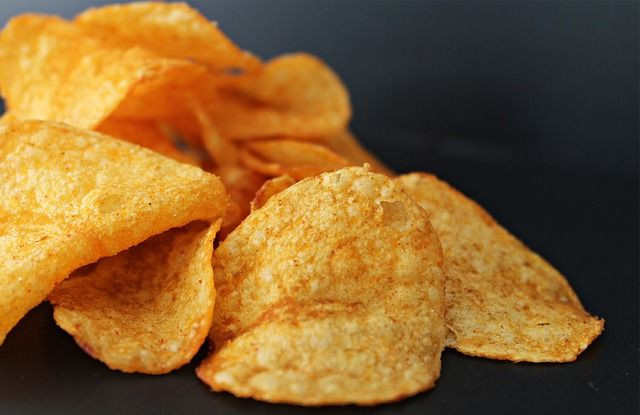Potato Chip Causes 'Sharp Pain' In Woman's Throat, Leads To Discovery Of Throat Cancer

Kristine Moore is not shy about telling people, “I’ve eaten Ruffles potato chips every day of my life for the past 20 years.” Although no one’s saying this a healthy habit, there’s also no denying that her affinity for deep-fried potato crisps saved her life. After a sharp piece of a chip became lodged in her throat back in February, she eventually decided to go see a doctor and that’s where she learned that chip was “a blessing in disguise.” She was diagnosed with throat cancer early enough to get treatment.
In addition to eating potato chips every day for the past 20 years, Moore was also a cigarette smoker. However, she promptly quit upon receiving her diagnosis. She told the Everett Herald that although her mother quit smoking 25 years before passing away last year, she still ended up developing lung cancer. Moore’s older sister was also recently diagnosed with esophageal cancer.
It all started when a piece of Moore’s favorite snack poked her tonsils. Later, she asked her husband to look insider her mouth where he discovered a very red and swollen tonsil. The next day, she went to a walk-in clinic that immediately referred her to the Everett Clinic. When initial tests for strep throat came back negative, her doctors still knew something was wrong and decided to take a biopsy, which came back as abnormal. A follow-up biopsy and CT scan revealed a tumor the size of a quarter in her throat. She was diagnosed with squamous cell carcinoma of the left tonsil.
A form of throat cancer, squamous cell carcinoma of the tonsil is the most commonly diagnosed cancer of the head and neck. Around 39,500 people in the United States were diagnosed with it in 2015. It develops in the squamous cells that line our throat. Factors that increase the risk of throat cancer include human papillomavirus, excessive alcohol consumption, and tobacco use.
Although her pack-a-day habit most likely led to cancer development, Moore’s bag-of-Ruffles-a-day habit led to the early diagnosis. Her cancer has not spread beyond the throat and doctors are confident that catching it early will lead to a good prognosis. She plans on starting chemotherapy and radiation treatments at the end of this month. Unfortunately, she also has to give up her potato chip habit to make room for a feeding tube and port in her chest for new drugs that prevent sores on her mouth and esophagus during treatment.
Published by Medicaldaily.com



























